No influx of Venezuelan crabs in Trinidad
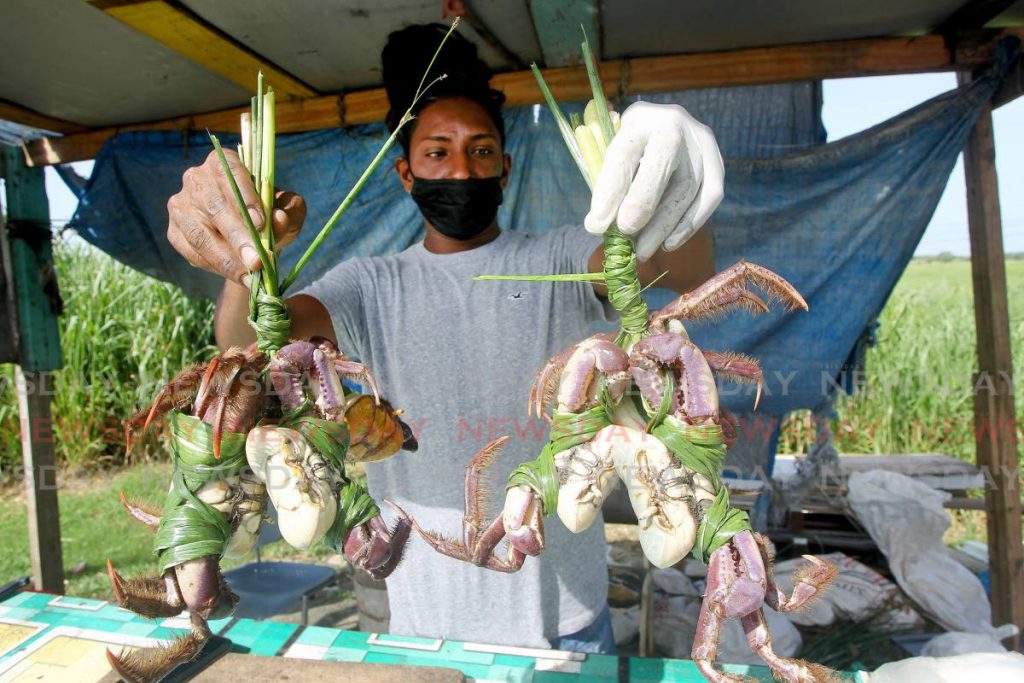
The economic crises in Venezuela, coupled with the pandemic, seem to have decreased the illegal importation of crabs for sale in TT.
As of Wednesday, chairman of the Siparia Regional Corporation Dinesh Sankersingh said the corporation had no reports about the neighbouring country's crabs being sold on the local market.
Sankersingh told Newsday in a telephone interview that the corporation is more concerned about the growing Venezuelan migrant population. He said, considering the pandemic, the incoming illegal migrants are not screened or tested on arrival.
"We have not heard about any crabs coming in at this time. What we are concerned about is the porous borders. The issue is the number of people entering illegally and the threat and fear of the virus coming in."
Cedros, which falls under the corporation, is one the closest communities to Venezuela.
Contacted for comment, Minister of Agriculture, Land and Fisheries Clarence Rambharat said: "Illegal activities between TT and Venezuela are going on for a long time. It is something that I have spoken about a lot and, in particular, the illegal trade in wildlife."
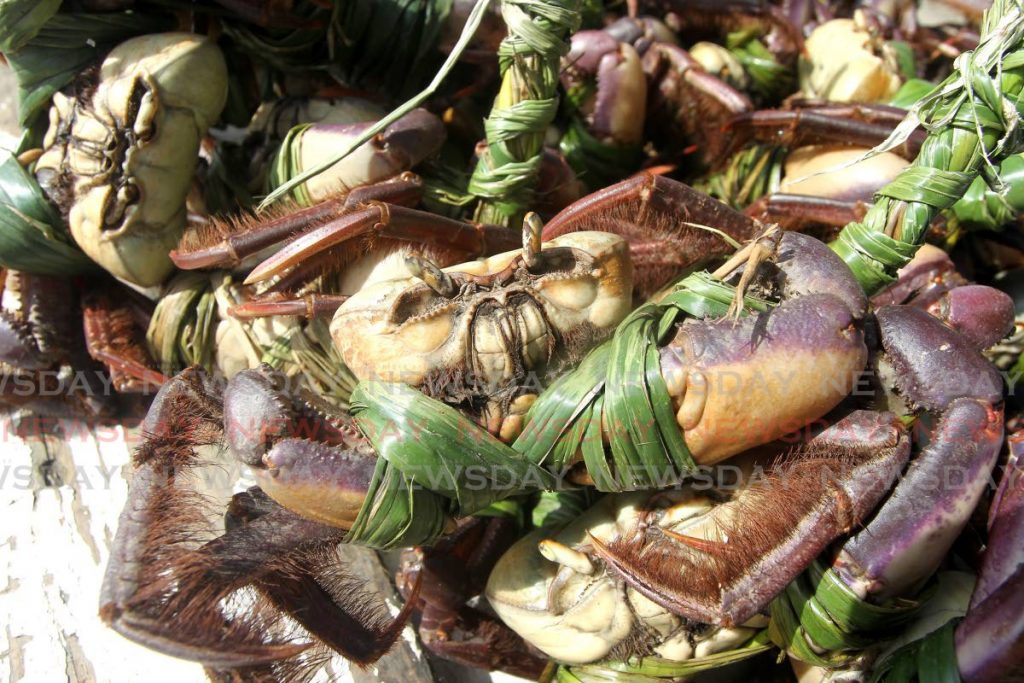
He said he was unable to pinpoint a specific case.
"But we deal with reports and support law enforcement on a daily basis. The security of the border and the enforcement of the law is handled by the Ministry of National Security."
Crab season is generally year-round, and many people catch crab as a form of recreation.
Vendor Narie Mahase, who lives in Cunupia, explained that the best time to catch crabs in TT is in July to September, "about three days after the full moons." Like the chairman, he said he has not heard about any influx of the Venezuelan crabs.
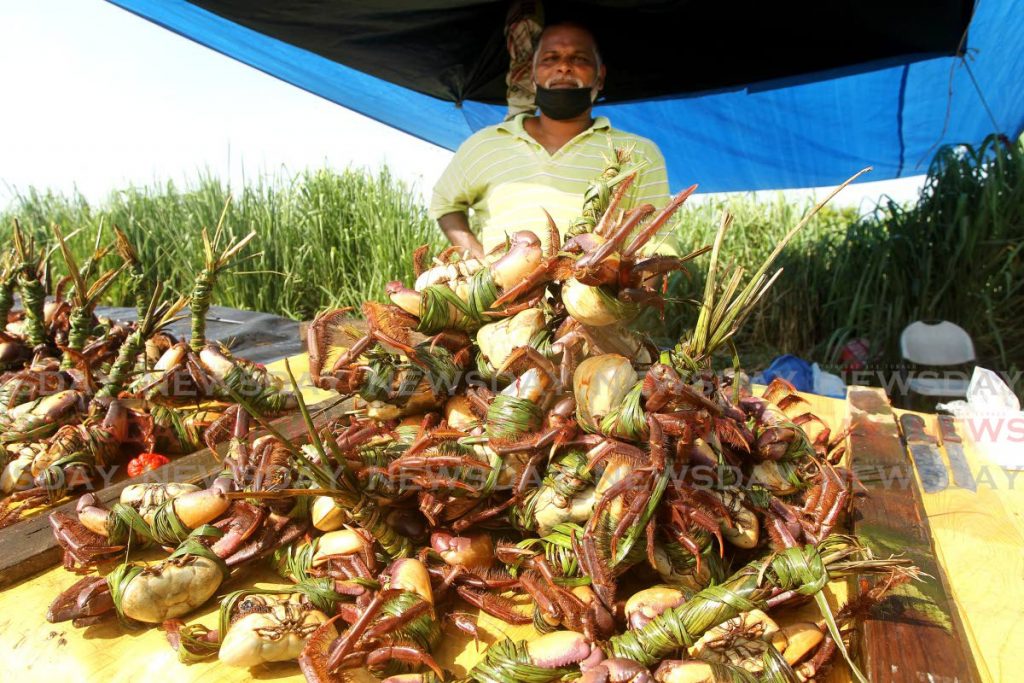
But, unconfirmed reports of the illegal trade "in the south side" suggest a few on the market, he said.
"People have to be in this business for many years to know the difference. It is hard to tell them apart. The tastes are different too. Crabs in Venezuela are bigger," Mahase said.
"The local crabs are sweeter. People from many of the other Caribbean islands do not eat crabs, so those countries have a larger population of these animals."
Mahase previously sold crabs at the Tunapuna market for more than ten years and has been selling at the Caroni bridge at the Southern Main Road for the same period.
At the Caroni bird sanctuary, he said, catching crabs is prohibited in about 95 per cent of the area. People are allowed to catch crabs in the rest, but they must get a pass to enter the prohibited area to get to and from the designated crab-catching area.
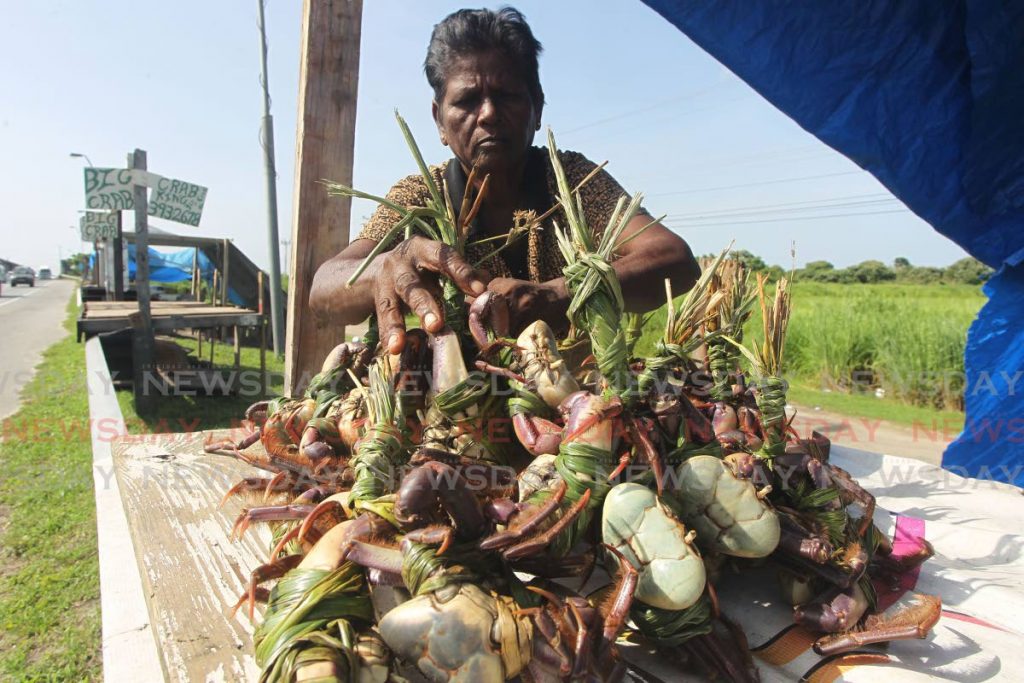
He complained that he and others have had problems getting the passes, which last for six months.
"They do not like to renew it for us. I do not know why. Once, I did not get it renewed in over two years. This is challenging for us. It is easier to pass through the sanctuary than to take a longer route by sea to get to the mangroves.
"Throughout the year, I have workers who catch crabs. We also catch them in Waterloo, Carli Bay, Mayaro, Woodland."
He said the blue crabs, hairy crabs (found in the mangroves), and sea crabs are TT's main species.
Mahase said, "Blue crabs are the most expensive. It sells for five for $100. Hairy crabs cost about $50 for five. People are buying crabs."
Another crab catcher/vendor who asked to remain anonymous had the same views.
"All our crabs are legal and safe to eat."
In July 2018, Rambharat warned the public not to buy fresh crabs from Venezuela. The warning came in the wake of an advisory from the US Food and Drug Agency that the seafood may be contaminated with Vibrio parahaemolyticus – a bacterium in the same family as those that cause cholera.
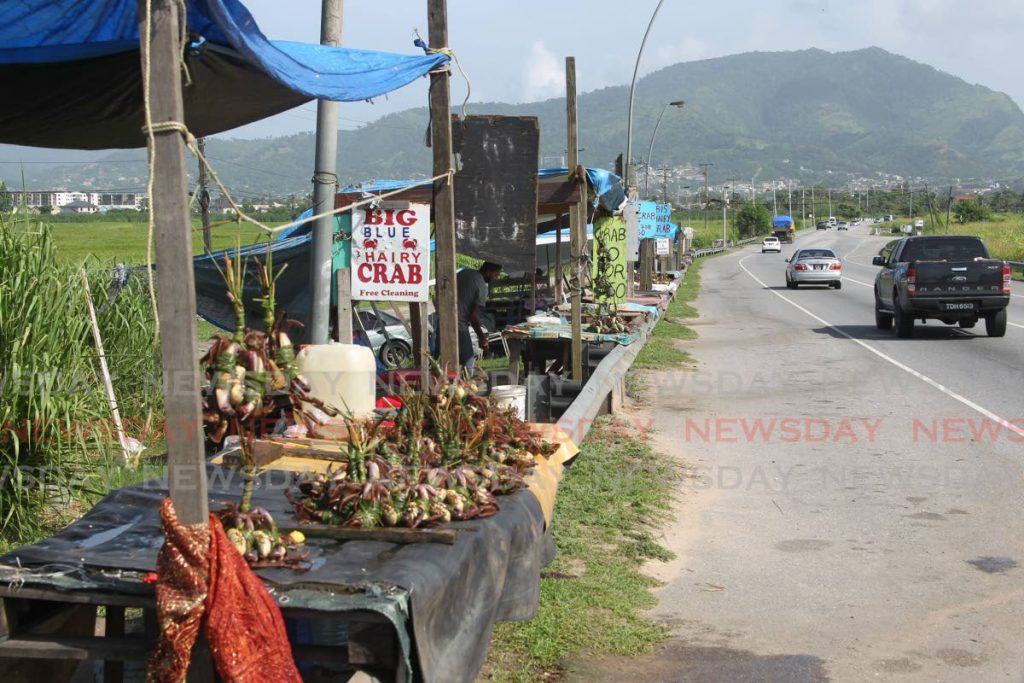
The advisorywarned that people infected with Vibrio parahaemolyticus experience diarrhoea, vomiting, abdominal cramps, nausea, fever, and stomach pain.


Comments
"No influx of Venezuelan crabs in Trinidad"